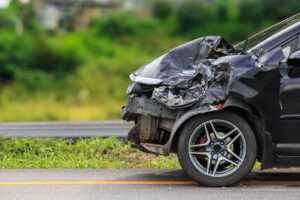As we navigate the bustling streets and highways of the UK, road safety is a paramount concern for all of us.
Car accidents not only result in property damage and injuries but can also have devastating consequences for families and communities. Let’s take a closer look at the various initiatives in place across the UK aimed at preventing car accidents and making our roads safer for everyone.
Government Initiatives
The UK government takes road safety seriously and has implemented several initiatives to address the issue. From public awareness campaigns to legislative measures, efforts are underway to tackle common causes of accidents such as speeding, drunk driving, and distracted driving. For instance, campaigns like “Think!” educate drivers about the dangers of risky behaviours and encourage safer practices on the road.
Infrastructure Improvements
Improving road infrastructure is another key strategy in enhancing road safety. This includes initiatives such as redesigning roads to reduce congestion and improve traffic flow, installing traffic calming measures in residential areas, and upgrading pedestrian crossings to make them safer for pedestrians and cyclists. By investing in infrastructure improvements, authorities aim to create safer environments for all road users. If you do find yourself in a car accident and you need help making a claim, head to rtaclaims.co.uk.
Technology Integration
Advancements in technology play a significant role in improving road safety. From advanced safety features in vehicles to sophisticated traffic management systems, technology is being leveraged to prevent accidents and minimise their impact. For example, automatic braking systems and lane departure warnings help drivers avoid collisions, while intelligent traffic lights optimise traffic flow and reduce congestion.
Community Engagement
Community engagement is vital in promoting road safety at the grassroots level. Neighbourhood watch programs, school outreach initiatives, and community-led advocacy efforts all play a crucial role in raising awareness and fostering safer behaviours on the road. By actively involving communities in road safety initiatives, authorities can create a sense of shared responsibility and ownership over road safety issues.
Evaluation and Monitoring
To ensure the effectiveness of road safety initiatives, ongoing evaluation and monitoring are essential. Data collection and analysis help authorities understand trends in accident rates and identify areas for improvement. By regularly reviewing the impact of their efforts, policymakers can make informed decisions and allocate resources where they are needed most, ultimately saving lives and reducing the incidence of accidents.
Some of My Actions Caused the Crash: Do I Have to Take All of the Blame?
Being in a car accident is a traumatic event, and it’s not until later on that you think about what really happened. At the time, it can be a blur. But, once you’ve calmed down and really thought about what went on, you can start piecing it all back together again.
At the time, you might have been convinced that the other driver caused the crash. Yet, after some reflection, you believe that some of the actions could have contributed to the accident. So, where do you go from here? Here are some elements you need to consider.
It Depends on the Actions
First, it has to be considered what actions you’re referring to. These are going to be assessed in a claim and experts will take a look at whether your actions really contributed to the crash. If the answer is no, then the other party is going to be at fault. They’ll handle all of the expenses and damages. But, if it’s found that some of your actions contributed to the accident, this means that you might have to take some of the blame. In other words, the compensation you receive will be reduced to reflect the part you played in the accident. Note that it doesn’t mean that all of the blame will be shifted to you.
Consider Whether You Are Feeling Guilty
Something you must consider is whether your frame of mind is affecting how you’re thinking about the crash. For example, most people wish it never happened. So, they believe in their head there could have been ways to prevent the crash from happening in the first place. In reality, this isn’t the case. Accidents happen in the flash of an eye, which means that there’s often nothing you can do about it. It’s only with hindsight that you believe you could.
Therefore, think about whether you’re feeling guilty about the crash. You’re dreading getting your car repaired and everything that goes with the process. Feeling like this can make you think that your actions caused the crash. However, you’ll find that this isn’t true.
Conclusion
Road safety is a shared responsibility that requires collective action at all levels of society. By implementing a combination of government initiatives, infrastructure improvements, technology integration, and community engagement, we can work together to prevent car accidents and create safer roads for everyone.
Read more:
Road Safety Initiatives in the UK: What’s Being Done to Prevent Car Accidents?















